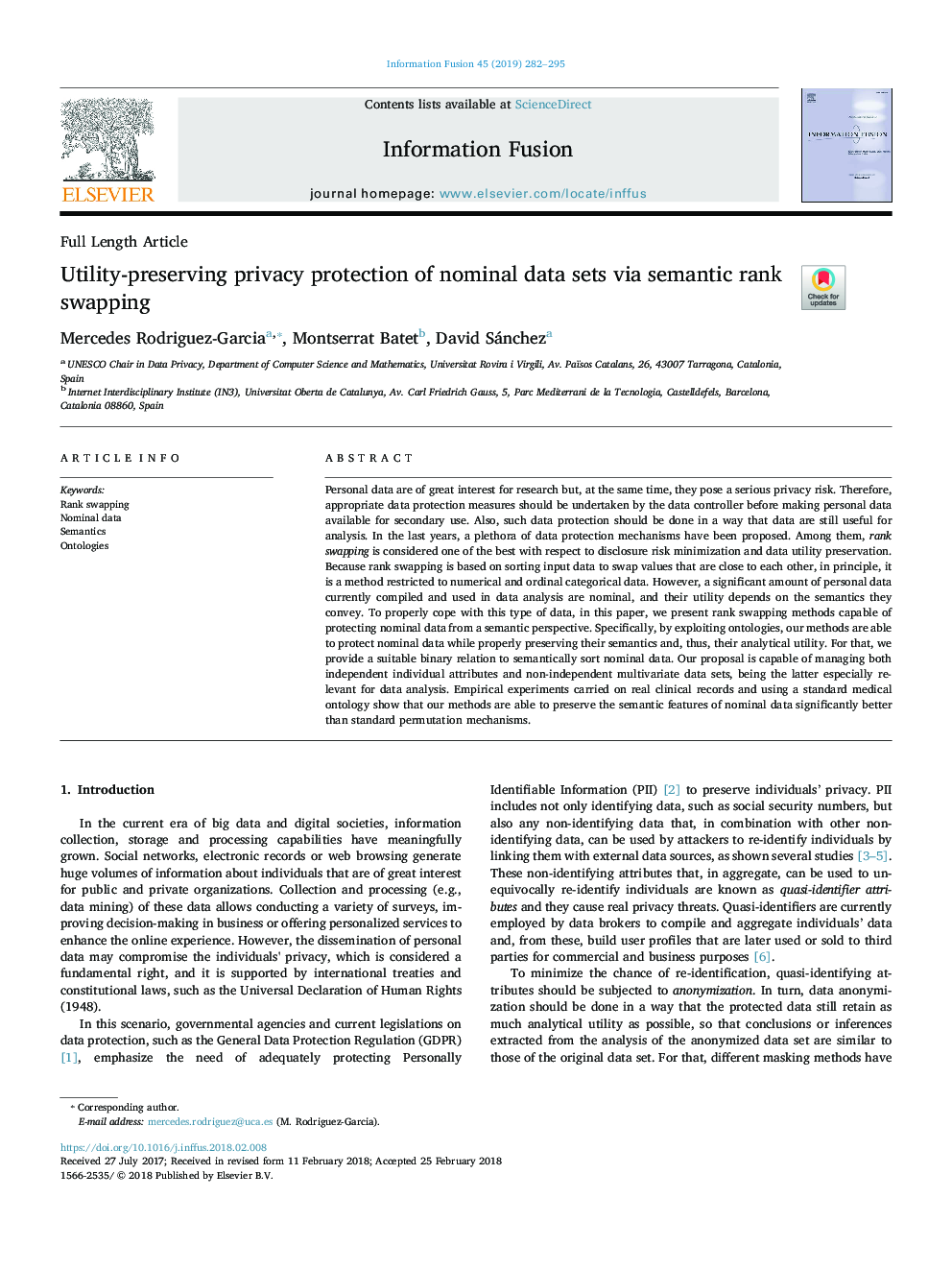| Article ID | Journal | Published Year | Pages | File Type |
|---|---|---|---|---|
| 6937909 | Information Fusion | 2019 | 14 Pages |
Abstract
Personal data are of great interest for research but, at the same time, they pose a serious privacy risk. Therefore, appropriate data protection measures should be undertaken by the data controller before making personal data available for secondary use. Also, such data protection should be done in a way that data are still useful for analysis. In the last years, a plethora of data protection mechanisms have been proposed. Among them, rank swapping is considered one of the best with respect to disclosure risk minimization and data utility preservation. Because rank swapping is based on sorting input data to swap values that are close to each other, in principle, it is a method restricted to numerical and ordinal categorical data. However, a significant amount of personal data currently compiled and used in data analysis are nominal, and their utility depends on the semantics they convey. To properly cope with this type of data, in this paper, we present rank swapping methods capable of protecting nominal data from a semantic perspective. Specifically, by exploiting ontologies, our methods are able to protect nominal data while properly preserving their semantics and, thus, their analytical utility. For that, we provide a suitable binary relation to semantically sort nominal data. Our proposal is capable of managing both independent individual attributes and non-independent multivariate data sets, being the latter especially relevant for data analysis. Empirical experiments carried on real clinical records and using a standard medical ontology show that our methods are able to preserve the semantic features of nominal data significantly better than standard permutation mechanisms.
Keywords
Related Topics
Physical Sciences and Engineering
Computer Science
Computer Vision and Pattern Recognition
Authors
Mercedes Rodriguez-Garcia, Montserrat Batet, David Sánchez,
